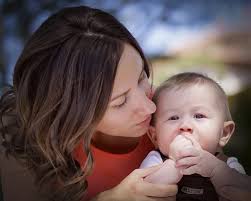Allergies – Asthma
Allergies such as Asthma are increasing in children. There are many theories as to why this is. Children are usually not diagnosed with Asthma until they are two years old. By that age these toddlers will have had a history of bad chests. Their medical history related by their parents commonly is that they started off earlier as babies with relapsing croupy/dry coughs, phlegmy coughs and repeated antibiotics.

Asthma/repeating coughs are a common reason for parents to bring their children to me. Asthmatics will be on preventive inhalers but may also still be suffering and sometimes ending up in A&E for nebulising. Parents want them to be well all year round and that’s where I come in with homeopathy.

Your doctor can arrange a blood test for your child to check for allergies when age appropriate. Practical advice such as having wooden floors instead of carpets is good to know as it cuts down on house dust mites. Some children will be allergic to cat or dog hair.

Goats milk products are less allergenic than cows milk products. Switching can lessen the production of mucus. You can get goats milk, goats yoghurt and goats cheese in the fridge of all major supermarkets. Goats milk baby formula is also widely available in chemists and health food shops.

When my eldest turned one as he was still breastfed he hadn’t had any other dairy products. I introduced a daily cows milk yoghurt every day plus cheese and milk. After six weeks it dawned on me that the cold he had had for six solid weeks was since he had turned one!

I changed his dairy intake to goats milk products and the cold disappeared. When he was three, I gradually switched back over to cows milk products over a few weeks and he has continued to drink loads of cows milk to this day without getting symptoms.

He luckily only had a very mild sensitivity which some babies and children may have, leading to symptoms such as increased mucus. Goats milk has a different taste to cows milk, but babies usually don’t notice the difference in the taste, whereas it may be more noticeable to older children.
Eczema
Eczema is an inflammatory itchy dry skin condition which causes baby or child to scratch and is diagnosed by your doctor. Some babies have it from birth.

It can start mild and in one place and it can progress to cover more of the body and be much more intense. The symptoms are redness, itchiness, dry skin and cracking skin. It can keep the child (and you!) up at night. Your doctor can organise a blood test when age appropriate to find out any food allergies such as dairy, eggs etc. See Asthma above for alternatives to cow’s milk. The usual treatment offered is steroids and if infected a course of antibiotics.

There are practical things you can do to lessen the effect. Keep baby and children’s room cool at night, and avoid heavy covers that will overheat them, as it is usually worse with heat. Use plenty of lightweight breathable fabric covers instead. Dress them in 100% cotton clothes.

Do not use soap, or products containing fragrance or parabens on their skin or in the bath. Use non biological washing powder. Sugar will make it worse, so avoid sweets, fizzy drinks, cordials, ice cream, chocolate, biscuits etc. You can offer popcorn (salty if age appropriate and not sugar), water and crisps as a treat instead.

Your child’s diet should be full of unprocessed food as it is found that often colourings, preservatives and flavourings will make it worse. Consider making your own frozen popsicles using a non dairy carton of milk or goats milk, pop some berries in it (not strawberries) and freeze. Porridge is a natural anti-inflammatory and a great start to the day.

Moisturizing is very important and should be done morning and evening with Silcocks Base – really lather it on, 500 – 1000 gms a week. It is cheap and widely available in the supermarkets and dispensaries. It helps stop the skin from drying out and cracking. E45 is also a great product to use for moisturising.
Read here for a natural topical remedy for eczema.

Hay Fever
Hay fever sufferers can be locked up in their houses from May to July, with puffy streaming eyes, itchy throats and sneezing. Many only seem to get relief when they go abroad on holidays.

People suffering like this will be using anti-histamines and possibly steroids to get some relief. Some practical advice is to put vaseline on as a pollen barrier around the edge of each nostril to trap or block pollens. Wear wrap around sunglasses when outside to protect the eyes from pollen allergens. Keep the windows closed. Sea side air blows the pollen inland so a day at the sea can be symptom free.

Homeopathic remedies are prescribed for the acute symptoms and in between the flare ups for the chronic condition, to stimulate the body’s own defence system to cope with exposure to allergens.
Read my post on Hay Fever remedies traditionally used for acute hay fever symptoms.
Read Drew’s allergy story and Homeopathy here: https://homeopathy-uk.org/success-story/drews-story/
